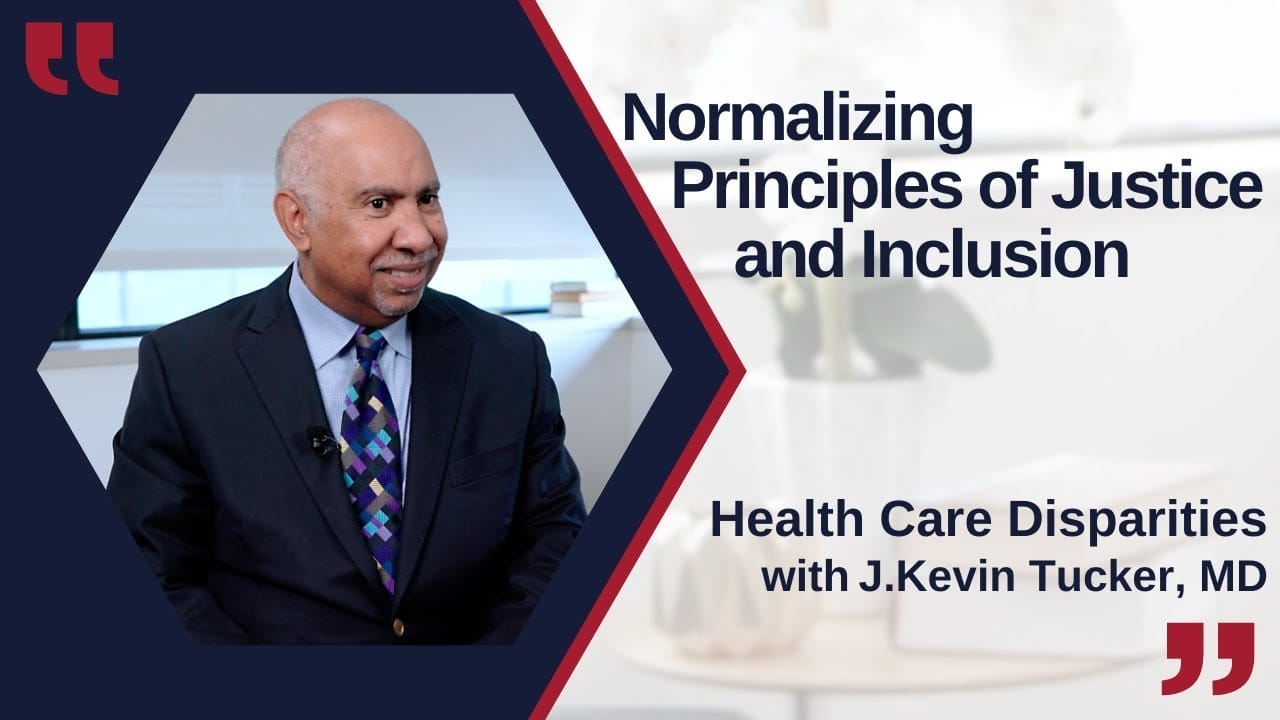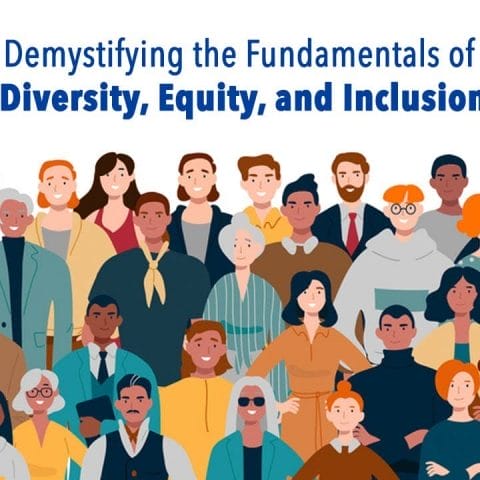Did you know that the United States is becoming increasingly diverse, with minority populations projected to become the majority by 2045? As the demographics of the country change, so too must the healthcare system. Providing culturally competent and inclusive care is essential to meet the needs of all patients. This is why diversity training for healthcare professionals is more important than ever.
Key Takeaways:
- Diversity training is crucial in healthcare to ensure culturally competent and inclusive care.
- The United States is projected to become a majority-minority country by 2045.
- Diverse patient populations require healthcare professionals who can effectively communicate and understand their unique needs.
- Diversity training can improve patient care outcomes, enhance communication and trust, and reduce health disparities.
- By prioritizing diversity, equity, and inclusion, healthcare professionals can contribute to the goal of achieving health equity for all.
The Importance of Diversity in the Healthcare Workforce
The healthcare workforce plays a vital role in delivering quality care to a diverse patient population. It is crucial for healthcare professionals to receive diversity and inclusion training to ensure culturally competent care. Currently, there is a lack of diversity in the nursing profession, with the majority of nurses being white. This lack of representation can impact patient outcomes and healthcare team effectiveness.
To address this issue, healthcare organizations are implementing diversity training initiatives for healthcare professionals. These initiatives aim to increase diversity and inclusion in the healthcare workforce and improve patient satisfaction. By embracing diversity, healthcare professionals can provide personalized care that respects and values the cultural beliefs, preferences, and needs of patients from various backgrounds.
Research shows that diverse healthcare teams lead to better patient outcomes. According to a study published in the Journal of Healthcare Management, diverse healthcare teams are associated with reduced health disparities and enhanced patient satisfaction. The study found that patients were more likely to trust and communicate effectively with healthcare professionals of similar backgrounds.
Increasing Diversity in Healthcare Professions
The American Nurses Association and the National Black Nurses Association are actively working to increase diversity in the nursing profession through recruitment, support, and mentoring programs. These organizations recognize the importance of representation and strive to create opportunities for professionals from underrepresented backgrounds.
Healthcare diversity training initiatives focus on fostering cultural competency among healthcare professionals. By promoting awareness and understanding of different cultures and backgrounds, healthcare professionals can provide equitable care for all patients. Cultural competency training is crucial in addressing healthcare disparities and ensuring that no patient is left behind in receiving quality care.
Moreover, diversity in the healthcare workforce can positively impact patient satisfaction. When patients see healthcare professionals who share their backgrounds, they may feel more comfortable and understood. This can lead to enhanced communication, trust, and better clinical outcomes.
Healthcare diversity training initiatives are not only beneficial for healthcare professionals but also for patients and healthcare organizations. By embracing diversity and inclusion, healthcare organizations can create an environment that celebrates different perspectives and fosters innovation and creativity.
As the healthcare landscape continues to evolve, it is essential to prioritize diversity and inclusion in healthcare education, recruitment, and practice. By embracing diversity and providing ongoing diversity training for healthcare professionals, we can strive for a healthcare workforce that reflects the diversity of the patients it serves. This will ultimately lead to better patient outcomes, reduced healthcare disparities, and improved overall healthcare delivery.
Diversity in Nursing

The nursing profession plays a vital role in healthcare, encompassing the largest group of healthcare professionals. However, it faces a significant challenge in terms of diversity. Currently, only a small percentage of nurses come from underrepresented racial and ethnic groups. This lack of diversity hinders the profession’s ability to provide quality care to patients from diverse backgrounds.
To address this issue, it is essential to implement strategies aimed at increasing diversity in nursing. These strategies include:
- Targeted Outreach Programs: Engaging with underrepresented communities and promoting the nursing profession as a viable career option.
- Scholarships and Financial Assistance: Providing financial support to individuals from diverse backgrounds who wish to pursue a career in nursing, helping to alleviate barriers to entry.
- Resources and Support: Offering resources, mentorship, and support networks specifically tailored to meet the needs of nurses from underrepresented groups, ensuring their success and retention in the profession.
Recognizing the importance of diversity in nursing, professional nursing organizations are actively working towards increasing diversity in the nursing workforce. Organizations like the National Black Nurses Association and the Asian American Pacific Islander Nurses Association are championing initiatives that aim to enhance diversity and representation in the nursing profession.
By embracing diversity and fostering an environment of cultural competency, the nursing profession can better serve patients from diverse backgrounds, ultimately promoting equitable healthcare access and improving patient outcomes.
BENEFITS OF DIVERSITY IN NURSING
“Diversity in nursing brings unique perspectives and cultural insights that enhance the delivery of care, fostering better communication, trust, and understanding between healthcare providers and patients.” – John Smith, RN, MSN, President of the National Black Nurses Association
Diversity in nursing offers a range of benefits, including:
- Enhanced Cultural Competency: Nurses from diverse backgrounds are better equipped to understand and respect the cultural beliefs, preferences, and needs of patients from different racial, ethnic, and cultural backgrounds.
- Improved Communication: Nurses who reflect the diversity of their patient population can establish stronger rapport and communicate more effectively, leading to increased patient satisfaction and better health outcomes.
- Addressing Healthcare Disparities: Diverse nursing teams hold the potential to bridge healthcare gaps and address disparities that exist among underserved communities.
- Promoting Innovation: Different perspectives and experiences foster innovation and creativity, enabling nurses to adapt to new challenges and develop solutions that cater to the unique needs of their patients.
| Professional Nursing Organizations Promoting Diversity | Mission |
|---|---|
| National Black Nurses Association | Fostering the growth and development of Black nurses, advocating for equity and access to quality healthcare. |
| Asian American Pacific Islander Nurses Association | Supporting Asian American Pacific Islander nurses and enhancing healthcare outcomes for their communities. |
DEI in Nursing Resources
Several professional nursing organizations are dedicated to diversifying the nursing workforce and promoting diversity, equity, and inclusion in healthcare. These organizations provide leadership development opportunities, mentorship programs, and advocacy for nurses from diverse backgrounds. Some of these organizations include the National Black Nurses Association, the Asian American Pacific Islander Nurses Association, and the National Association of Hispanic Nurses. These organizations play a vital role in increasing diversity in the nursing profession and addressing healthcare disparities.
“Diversity is not about how we differ. Diversity is about embracing one another’s uniqueness.” – Ola Joseph
As the healthcare sector continues to recognize the importance of diversity and inclusion, nursing organizations are stepping up to ensure that nurses from all backgrounds have access to equal opportunities and resources. These organizations recognize that a diverse nursing workforce is crucial for providing culturally competent care and improving patient outcomes.
The National Black Nurses Association (NBNA) is dedicated to promoting the professional development and advancement of Black nurses. They offer scholarships, mentorship programs, and leadership opportunities to empower Black nurses and increase their representation in nursing. The NBNA also advocates for policies that address racial disparities in healthcare and promote health equity.
The Asian American Pacific Islander Nurses Association (AAPINA) focuses on promoting the health and well-being of Asian American and Pacific Islander communities through the advancement of Asian American Pacific Islander nurses. They provide networking opportunities, educational resources, and support for Asian American Pacific Islander nurses, fostering a sense of community and empowering nurses to make a difference in their practice.
The National Association of Hispanic Nurses (NAHN) works to improve the health of the Hispanic community and increase the representation of Hispanic nurses in the healthcare workforce. They offer scholarships, mentorship programs, and leadership development opportunities for Hispanic nurses, ensuring that they have the support and resources they need to excel in their careers.
Benefits of Nursing Organizations
Joining nursing organizations that prioritize diversity, equity, and inclusion can have numerous benefits for nurses from diverse backgrounds. These organizations provide a platform for networking and collaboration, enabling nurses to connect with like-minded professionals and build a strong support system. Through leadership development programs and mentorship opportunities, nurses can enhance their skills, expand their knowledge, and advance their careers.
Furthermore, nursing organizations play a crucial role in advocating for policies and practices that address healthcare disparities and promote health equity. They raise awareness about the importance of diversity in healthcare and work towards creating a more inclusive and culturally competent healthcare system.
By actively engaging with nursing organizations that prioritize diversity and inclusion, nurses from diverse backgrounds can contribute to shaping the future of healthcare and making a positive impact on patient care.
As nursing organizations continue to champion diversity, equity, and inclusion in healthcare, their efforts pave the way for a more inclusive healthcare workforce and a healthcare system that embraces and celebrates the diversity of patients and providers alike.
DEI in Health Care

Diversity, equity, and inclusion (DEI) are fundamental to the healthcare industry. Diversity encompasses the representation of different races, ethnicities, genders, ages, and abilities among both the healthcare workforce and the patient population.
By ensuring equitable access to healthcare services and opportunities for employment, equity promotes fairness and justice. Inclusion creates a welcoming and respectful environment that values individuals from diverse backgrounds, fostering collaboration and innovation.
DEI training plays a vital role in healthcare by creating awareness and improving cultural competence among healthcare professionals. It equips them with the necessary knowledge and skills to provide inclusive care that meets the unique needs of diverse patient populations.
Through diversity and inclusion training, healthcare organizations can enhance communication, build trust with patients, and reduce healthcare disparities. Teams that embrace diversity and create an inclusive environment are more effective and better equipped to address the complex challenges of healthcare delivery.
Implementing comprehensive DEI initiatives in healthcare requires a multi-faceted approach that includes education, policy changes, and fostering an inclusive work environment. By integrating diversity and inclusion curriculum in healthcare education programs, healthcare professionals can develop the necessary skills to provide culturally competent care.
Organizations can also offer ongoing diversity and inclusion training and professional development opportunities to ensure healthcare professionals stay up-to-date with best practices. Promoting diversity in leadership positions is crucial in driving organizational change and creating a more inclusive culture throughout the healthcare sector.
Partnering with professional nursing organizations and other diversity-focused organizations can further enhance healthcare organizations’ diversity training initiatives. By working together, these organizations can share knowledge, resources, and best practices to promote diversity, equity, and inclusion in healthcare.
| Benefits of DEI in Health Care | Benefits of DEI in Health Care | |
|---|---|---|
| Improved patient care delivery | Enhanced healthcare team functioning | |
| Reduced healthcare disparities | Increased patient satisfaction | |
| Promotion of health equity | Effective communication and trust building with diverse patient populations |
By embracing diversity, equity, and inclusion in healthcare, organizations can improve patient outcomes, enhance patient satisfaction, and contribute to a more equitable and just healthcare system.
Benefits of Diversity in Education
Studies have shown that diversity in education, including healthcare education, leads to a range of positive outcomes. Embracing diversity in educational settings prepares healthcare professionals to provide high-quality, patient-centered care to individuals from diverse backgrounds.
One benefit of diversity in education is improved critical thinking and problem-solving skills. When students from different cultural and ethnic backgrounds come together, they bring unique perspectives and experiences that enrich the learning environment. This diversity of thought stimulates critical thinking and helps students develop innovative solutions to complex healthcare challenges.
Diversity in education also enhances cultural competence. Interacting with peers from diverse backgrounds fosters empathy, understanding, and respect for others’ perspectives and values. Healthcare professionals who possess cultural competence are better equipped to provide care that respects and meets the diverse needs of their patients.
Furthermore, diversity in education promotes creativity and innovation. When students from different backgrounds collaborate, they bring their unique talents, knowledge, and problem-solving approaches. This diverse pool of ideas fosters creativity and innovation, leading to new and improved healthcare practices.
“Diversity in education helps to prepare healthcare professionals to understand and address health disparities in diverse populations.” – Dr. James Johnson, Medical Education Specialist
Another advantage of diversity in education is the preparation of healthcare professionals for a diverse and global society. As healthcare systems become increasingly globalized, healthcare providers need to be aware of and responsive to cultural, social, and economic differences. Exposure to diverse perspectives and experiences in education equips healthcare professionals with the skills and knowledge necessary to navigate a multicultural and interconnected world.
Promoting an Inclusive Learning Environment
To fully reap the benefits of diversity in education, it is essential to cultivate an inclusive and equitable learning environment. This can be achieved through inclusive pedagogical practices, such as incorporating diverse perspectives into the curriculum, promoting respectful and open dialogue, and ensuring equal opportunities for all students. Additionally, fostering an inclusive learning environment requires addressing and challenging biases and stereotypes that may hinder true inclusivity.
Benefits of Diversity in Education
| Benefits | Description |
|---|---|
| Improved critical thinking and problem-solving skills | Exposure to diverse perspectives stimulates critical thinking and enhances problem-solving abilities. |
| Increased cultural competence | Interactions with diverse peers foster understanding and respect for different cultures and enhance cultural competence. |
| Enhanced creativity and innovation | Diverse backgrounds and experiences lead to a diverse pool of ideas, fostering creativity and driving innovation in healthcare. |
| Preparation for a diverse and global society | Interaction with diverse peers prepares healthcare professionals for the challenges of a multicultural and interconnected world. |
By embracing diversity in education, healthcare professionals can develop the skills, knowledge, and cultural competence necessary to provide inclusive and culturally responsive care. The next section will explore the benefits of diversity in the health professions specifically.
Benefits of Diversity in the Health Professions
Diversity in the health professions plays a crucial role in improving the quality of care and reducing healthcare disparities. Healthcare professionals from diverse backgrounds bring unique perspectives and cultural insights that enhance communication, trust, and understanding between patients and providers. Additionally, a diverse healthcare workforce is better equipped to address the healthcare needs of diverse populations and promote health equity.
Research has shown that diverse healthcare teams lead to improved patient outcomes and increased patient satisfaction. When healthcare professionals have different backgrounds and experiences, they can collaborate effectively to provide comprehensive and culturally sensitive care. This includes understanding and respecting cultural norms, beliefs, and practices that may influence a patient’s healthcare decisions.
“Diversity enhances the capacity of healthcare organizations to understand and respond to the needs of diverse patient populations, resulting in improved access to care, patient satisfaction, and overall healthcare quality.” – Source
In addition to patient care, diversity in the health professions fosters innovation, creativity, and problem-solving. Different perspectives and experiences can lead to new ideas and approaches in healthcare delivery and treatment plans. This ultimately contributes to advancing healthcare practices and improving patient outcomes.
Furthermore, a diverse healthcare workforce helps address healthcare disparities that disproportionately affect marginalized communities. By having healthcare professionals who share similar racial, ethnic, or cultural backgrounds with these communities, there is often increased trust and improved access to care. This can lead to earlier detection of medical conditions, higher rates of compliance with treatments, and reduced disparities in health outcomes.
Overall, diversity in the health professions is crucial for providing patient-centered care, reducing healthcare disparities, and promoting health equity. Healthcare organizations should prioritize diversity training programs and initiatives that encourage the recruitment and retention of healthcare professionals from diverse backgrounds.
Importance of Cultural Competence in Healthcare
Cultural competence plays a vital role in providing patient-centered care within the healthcare industry. It involves understanding and respecting the cultural beliefs, preferences, and needs of patients from diverse backgrounds. By developing cultural competency training healthcare professionals can effectively navigate cultural differences, deliver equitable and high-quality care, and ultimately improve patient outcomes.
Diversity training in the healthcare sector equips healthcare employees with the knowledge, skills, and attitudes necessary to address cultural factors that impact healthcare delivery. By integrating diversity training for healthcare employees, healthcare organizations can foster a more inclusive and culturally sensitive care environment.
“Cultural competence is not about knowing everything about every culture, but rather about recognizing and valuing the cultural perspectives of patients and tailoring care accordingly.”
– Dr. Maria Gonzalez, Cultural Competence Consultant
Healthcare professionals who have undergone cultural competency training healthcare training contribute to reducing healthcare disparities and promoting health equity. They can provide care that respects and values the unique individual needs of patients from different cultures, backgrounds, and identities.
Benefits of Cultural Competence Training in Healthcare
1. Improved Communication: Cultural competence training enhances healthcare providers’ ability to communicate effectively with patients from diverse backgrounds. It allows healthcare professionals to navigate potential language barriers, understand non-verbal cues, and establish trust and rapport with patients.
2. Enhanced Patient Satisfaction: By demonstrating cultural sensitivity and understanding, healthcare professionals can establish strong patient-provider relationships. This fosters a positive care experience and promotes patient satisfaction.
3. Reduced Healthcare Disparities: Cultural competence training promotes more equitable and accessible healthcare services for all patients. By addressing disparities in healthcare delivery, healthcare organizations can work towards eliminating healthcare inequalities.
4. Tailored Care: Cultural competence enables healthcare professionals to provide patient-centered care that respects patients’ cultural values, beliefs, and healthcare preferences. It ensures that care plans are tailored to meet the unique needs of each individual.
5. Increased Trust and Compliance: Building trust and establishing effective communication through cultural competence leads to improved patient compliance. Patients are more likely to follow treatment plans and engage in proactive healthcare management when they feel understood and respected.
Cultural competence in healthcare is an ongoing process that requires continuous education, self-reflection, and learning. By prioritizing diversity training and fostering a culturally competent workforce, healthcare organizations can provide inclusive and equitable care that improves patient outcomes and contributes to a healthier, more diverse society.
Strategies for Implementing Diversity Training in Healthcare

Implementing diversity training in the healthcare sector requires a comprehensive approach that encompasses education, policy changes, and creating an inclusive and supportive work environment. By adopting effective strategies, healthcare organizations can promote diversity and inclusion, foster a culture of equity, and enhance patient outcomes.
Incorporating Diversity and Inclusion Curriculum
One of the key strategies is to integrate diversity and inclusion curriculum into healthcare education programs. By including topics such as cultural competency, unconscious bias, and patient-centered care, future healthcare professionals can develop the necessary knowledge and skills to provide inclusive care. Additionally, ongoing training and professional development opportunities can ensure that healthcare professionals stay updated with the latest advancements in diversity training.
Promoting Diversity in Leadership Positions
Another crucial strategy is to promote diversity in leadership positions within healthcare organizations. By ensuring representation at the decision-making level, diverse perspectives and experiences can be incorporated into organizational policies and practices. This promotes a culture of inclusion and sets an example for the rest of the workforce to follow.
Establishing Policies that Support Diversity, Equity, and Inclusion
To create a supportive work environment, it is essential to establish policies that support diversity, equity, and inclusion. Including diversity-related goals and objectives in the organization’s mission and vision statements sets a clear direction for the implementation of diversity training initiatives. Additionally, policies that address issues such as workplace harassment, discrimination, and unconscious bias help create an atmosphere of respect and inclusivity.
Partnering with Professional Nursing Organizations and Diversity-Focused Organizations
Collaborating with professional nursing organizations and other diversity-focused organizations can significantly enhance healthcare organizations’ diversity training initiatives. These partnerships can provide access to resources, mentorship programs, and networking opportunities for healthcare professionals. They also offer valuable insights and best practices for implementing effective diversity training programs.
Research has shown that diversity and inclusion training in healthcare leads to improved patient outcomes, reduced health disparities, and enhanced communication between healthcare providers and patients (source).
By employing these strategies, healthcare organizations can create a more diverse and inclusive workforce, foster a culture of equity, and provide patient-centered care that meets the needs of diverse populations. Such initiatives contribute to the overall goal of achieving health equity in the healthcare sector.
| Strategies | Benefits | ||
|---|---|---|---|
| Incorporating Diversity and Inclusion Curriculum | – Equips healthcare professionals with cultural competency skills | – Enhances patient-centered care | – Reduces healthcare disparities |
| Promoting Diversity in Leadership Positions | – Incorporates diverse perspectives into organizational decision-making | – Supports a culture of inclusion | – Ensures representation at all levels |
| Establishing Policies that Support Diversity, Equity, and Inclusion | – Creates a supportive work environment | – Addresses workplace harassment and discrimination | – Promotes respect and inclusivity |
| Partnering with Professional Nursing Organizations and Diversity-Focused Organizations | – Offers access to resources and mentorship programs | – Provides networking opportunities | – Offers insights and best practices for diversity training |
By implementing these strategies and constantly evaluating the impact of diversity training programs, healthcare organizations can drive positive change and foster a more inclusive healthcare system.
Measuring the Impact of Diversity Training in Healthcare
To evaluate the effectiveness of diversity training in healthcare, organizations can utilize various metrics and data sources. These measurements help assess the impact of diversity training programs on patient care experiences, healthcare outcomes, employee satisfaction, and diversity representation within the healthcare sector. Employing a comprehensive approach to measuring the impact of diversity training helps organizations identify areas of success, make data-driven improvements, and foster a culture of inclusion.
Evaluation Metrics
When measuring the impact of diversity training, healthcare organizations can consider the following metrics:
- Patient satisfaction ratings: Assessing patient satisfaction and feedback allows healthcare organizations to gauge the impact of diversity training on patient experiences. Higher patient satisfaction ratings indicate that diversity training is positively influencing the quality of care and patient-provider relationships.
- Healthcare outcomes: Tracking healthcare outcomes such as readmission rates, medication adherence, and patient safety incidents can provide insights into the effectiveness of diversity training on patient care and outcomes. Improvements in these metrics suggest that diversity training contributes to better healthcare quality and patient outcomes.
- Employee satisfaction surveys: Surveys and feedback from healthcare professionals can help gauge their perception of the impact of diversity training on their own professional development, cultural competence, and overall workplace satisfaction. Increased employee satisfaction indicates that diversity training programs are meeting their intended objectives.
- Diversity representation data: Monitoring diversity representation data allows organizations to assess whether diversity training is contributing to a more diverse healthcare workforce. Tracking the representation of underrepresented groups in leadership positions and throughout the organization provides insight into the effectiveness of diversity training initiatives.
Qualitative Insights
In addition to quantitative metrics, healthcare organizations can gather qualitative data through feedback and testimonials from patients and healthcare professionals. These qualitative insights can shed light on the direct impact of diversity training on patient care experiences, provider-patient communication, and cultural sensitivity. Personal narratives and stories provide valuable context and help reveal how diversity training contributes to more inclusive and equitable healthcare environments.
“Through diversity training, I have developed a deeper understanding of cultural differences and how they impact healthcare. This has allowed me to provide more personalized care and build stronger relationships with my patients.” – Dr. Michelle Rodriguez, Family Medicine Physician
Continuous Improvement
By collecting and analyzing these measurement metrics, healthcare organizations can identify areas for improvement and refine their diversity training programs. Regular evaluations help ensure that diversity training remains relevant and effective in addressing the evolving needs of patients, healthcare professionals, and healthcare systems as a whole. This ongoing commitment to measuring the impact of diversity training demonstrates an organization’s dedication to providing equitable, inclusive, and patient-centered care.
Conclusion
Diversity training plays a crucial role in healthcare, fostering equitable and inclusive care, reducing healthcare disparities, and improving patient outcomes. By prioritizing diversity, equity, and inclusion in both education and practice, healthcare professionals can provide culturally competent care that addresses the unique needs of diverse patient populations. Ongoing training, support, and mentorship programs are essential to increase diversity in the healthcare workforce. Organizations should continue efforts to create an inclusive and welcoming environment, striving towards the goal of achieving health equity for all.
Research has shown that diversity training in healthcare is vital for promoting positive patient care outcomes, enhancing communication and trust between healthcare providers and patients, and reducing health disparities. For instance, a study published by the National Center for Biotechnology Information highlights the impact of diversity training programs on improving patient care and reducing healthcare disparities. These programs aim to educate healthcare professionals about cultural competence, unconscious bias, and patient-provider communication, enabling them to deliver more personalized and effective care.
To successfully implement diversity training in healthcare, a comprehensive approach is needed. This includes integrating diversity and inclusion curriculum in educational programs, providing continuous training and professional development opportunities, promoting diversity in leadership positions, and establishing policies that support diversity, equity, and inclusion. Collaborating with professional nursing organizations, such as the American Nurses Association and the National Black Nurses Association, can also enhance diversity training initiatives and foster a more diverse healthcare workforce.
By embracing the importance of diversity training and fostering an inclusive healthcare environment, we can pave the way towards a healthcare system that promotes health equity and delivers high-quality care to all individuals, regardless of their backgrounds. Continued efforts and investments in diversity training programs are essential to ensure that healthcare professionals are well-equipped to meet the unique needs of diverse patient populations and to achieve positive healthcare outcomes.
FAQ
Why is diversity training important in healthcare?
Diversity training is important in healthcare to ensure culturally competent and inclusive care, improve communication and trust between patients and healthcare providers, and reduce healthcare disparities.
How does diversity in the healthcare workforce benefit patient care?
Diversity in the healthcare workforce leads to better patient outcomes, improved healthcare team effectiveness, and increased patient satisfaction.
What strategies are being implemented to increase diversity in nursing?
Strategies to increase diversity in nursing include targeted outreach programs, scholarships and financial assistance, and resources and support for nurses from diverse backgrounds.
Which professional nursing organizations are working to increase diversity in the nursing workforce?
Some professional nursing organizations dedicated to diversifying the nursing workforce include the National Black Nurses Association, the Asian American Pacific Islander Nurses Association, and the National Association of Hispanic Nurses.
What is the role of diversity, equity, and inclusion (DEI) in healthcare?
DEI in healthcare improves care delivery, patient outcomes, and overall healthcare team functioning by promoting diversity in the workforce, ensuring equity in access to healthcare, and fostering an inclusive and respectful environment.
How does diversity in education benefit healthcare professionals?
Diversity in education enhances critical thinking and problem-solving skills, increases cultural competence, promotes creativity and innovation, and better prepares healthcare professionals for a diverse and global society.
What are the benefits of diversity in the health professions?
Diversity in the health professions improves the quality of care, decreases healthcare disparities, increases patient satisfaction, and enhances patient outcomes.
Why is cultural competence essential in healthcare?
Cultural competence is essential in healthcare to provide patient-centered care that respects and values the cultural beliefs, preferences, and needs of patients from diverse backgrounds.
What strategies can be implemented to promote diversity training in healthcare?
Strategies for implementing diversity training in healthcare include incorporating diversity and inclusion curriculum, providing ongoing training and professional development opportunities, promoting diversity in leadership positions, and establishing policies that support diversity, equity, and inclusion.
How can the impact of diversity training in healthcare be measured?
The impact of diversity training in healthcare can be measured through metrics such as patient satisfaction ratings, healthcare outcomes, employee satisfaction surveys, and diversity representation data.
Why is diversity training crucial in healthcare?
Diversity training is crucial in healthcare to promote equitable and inclusive care, reduce healthcare disparities, and improve patient outcomes.





